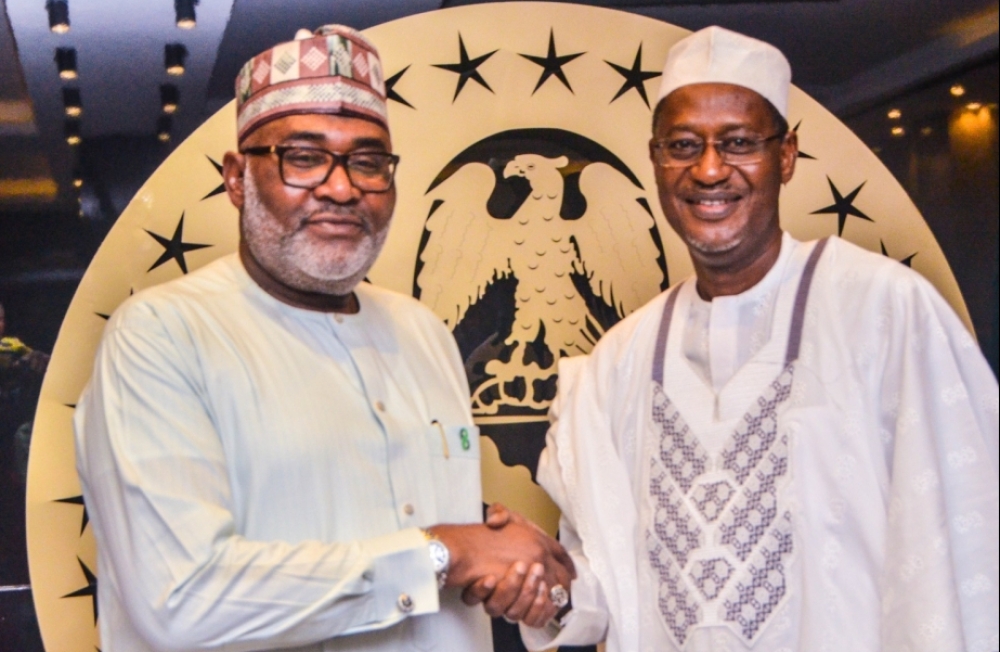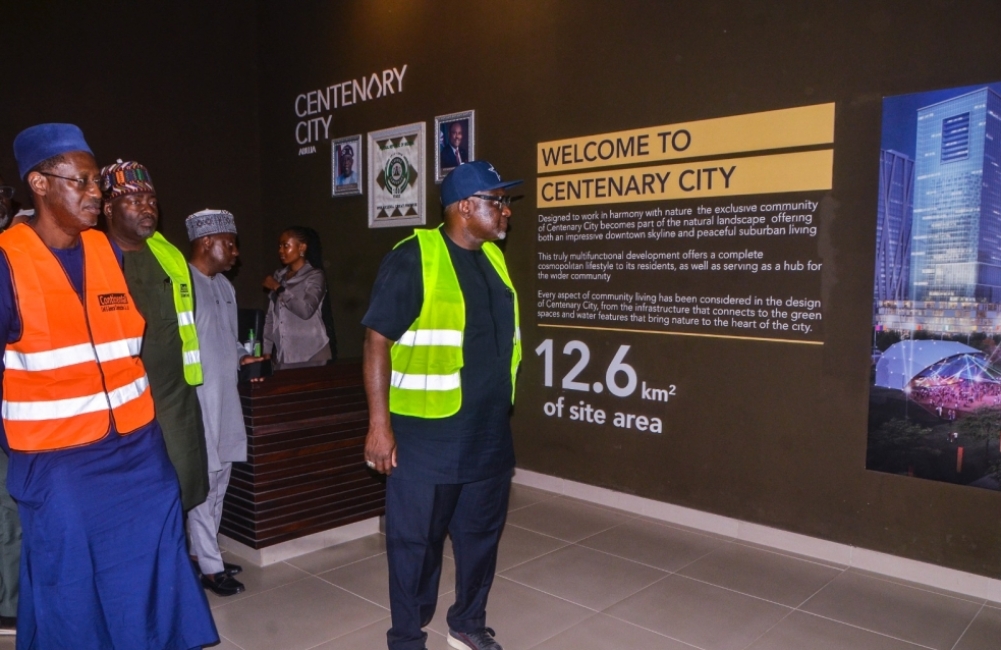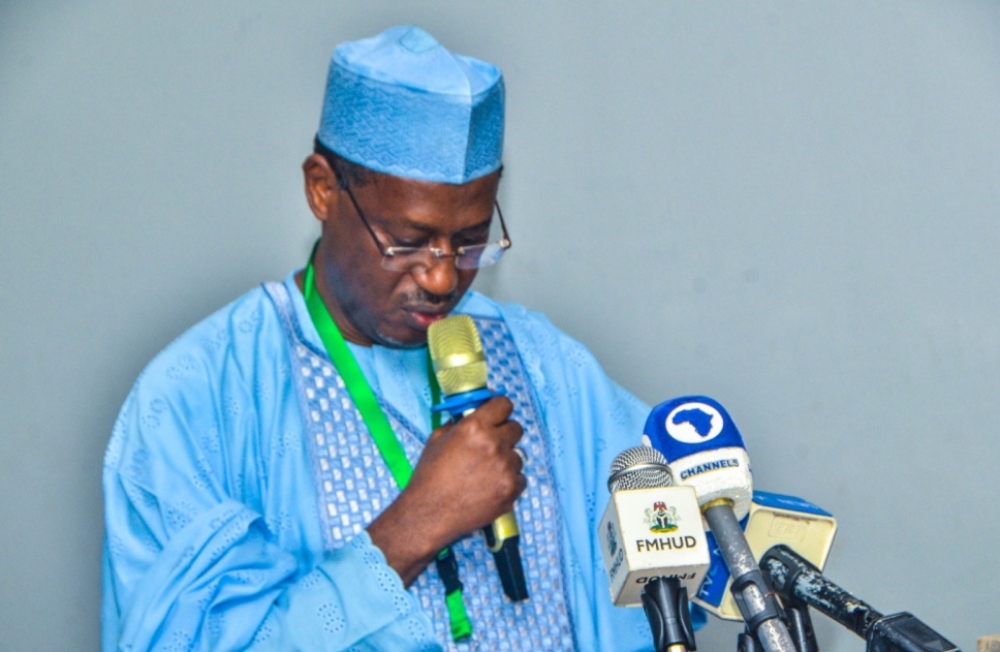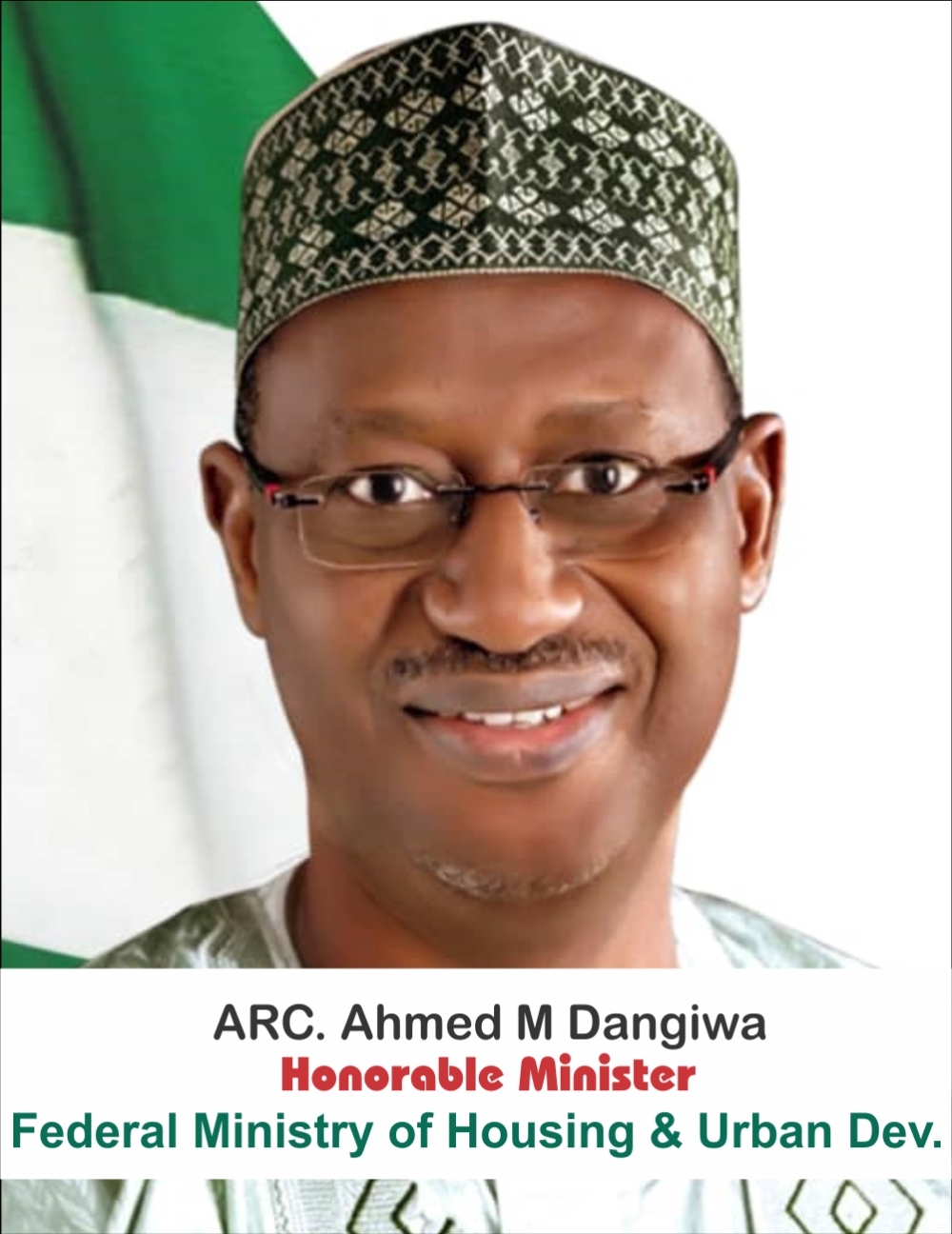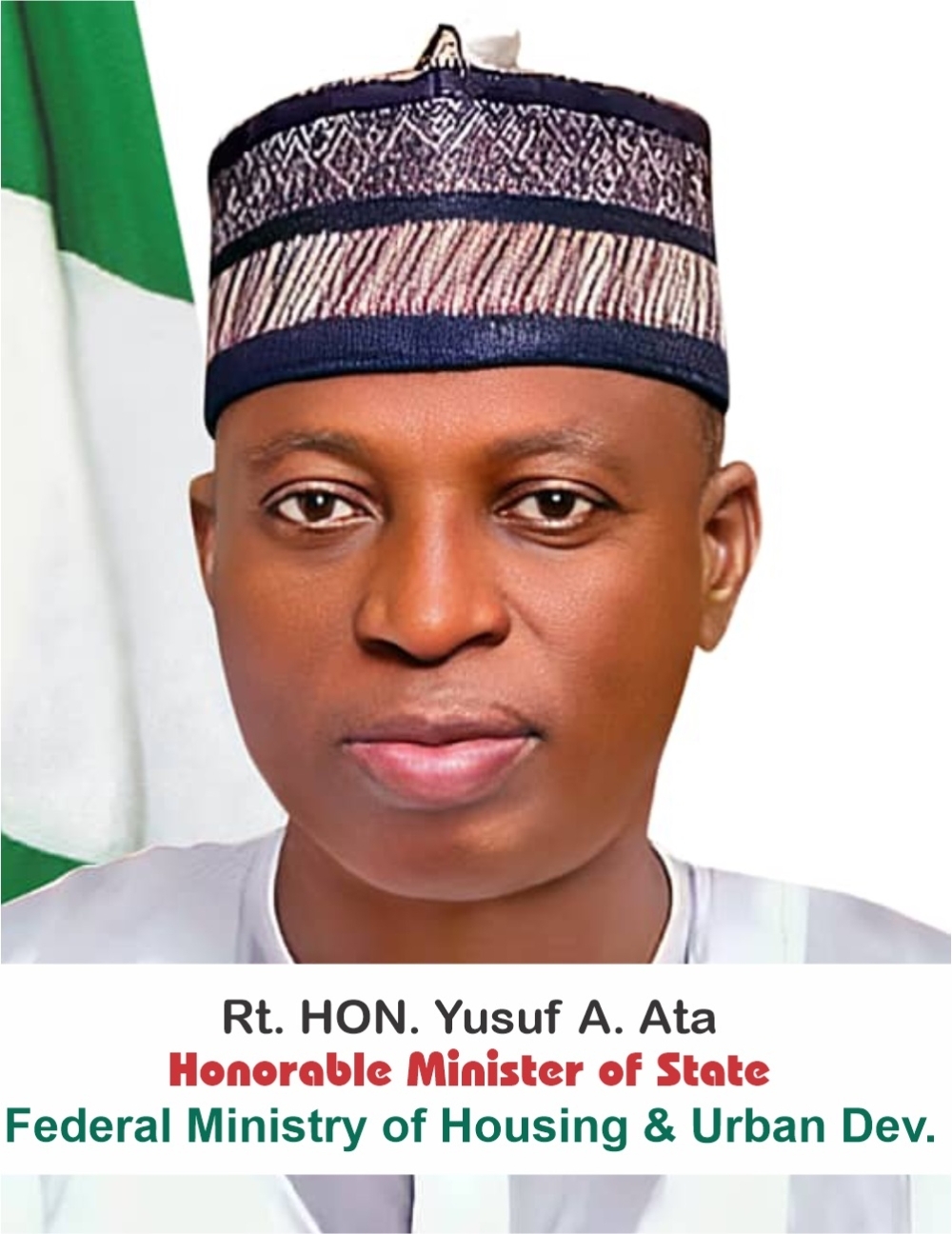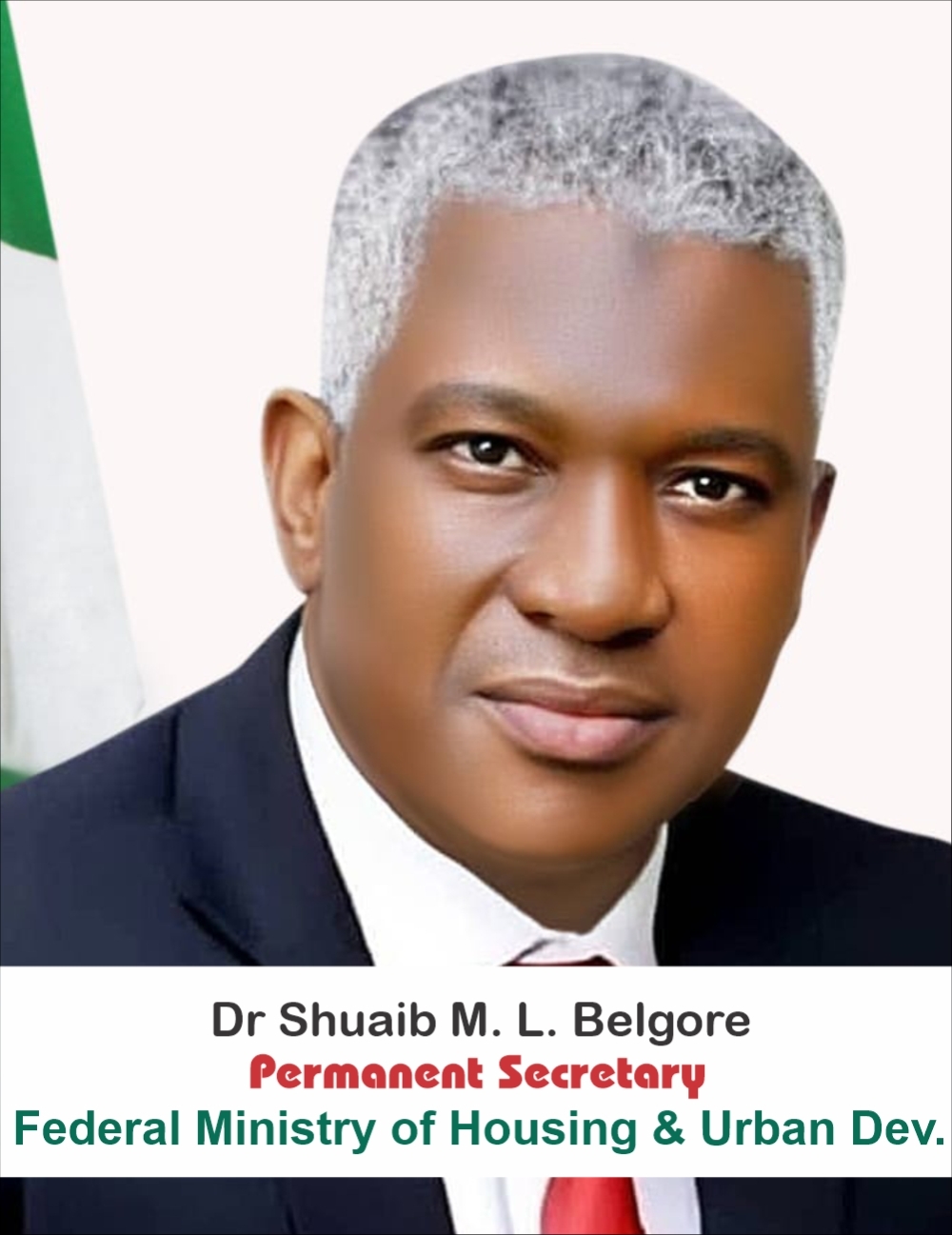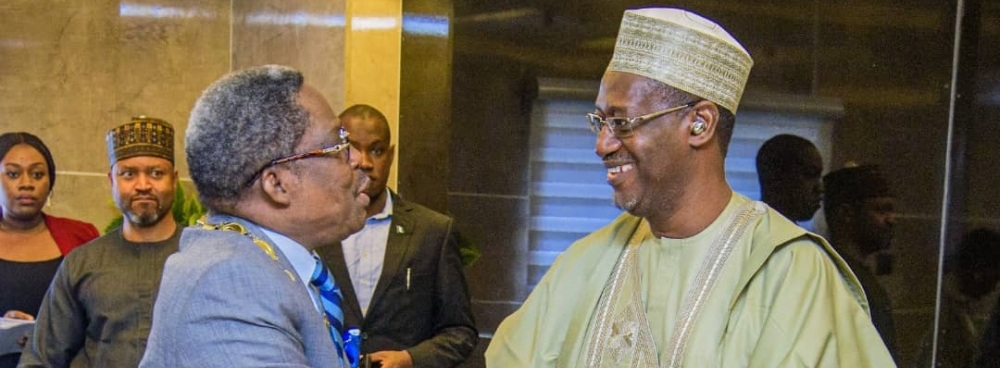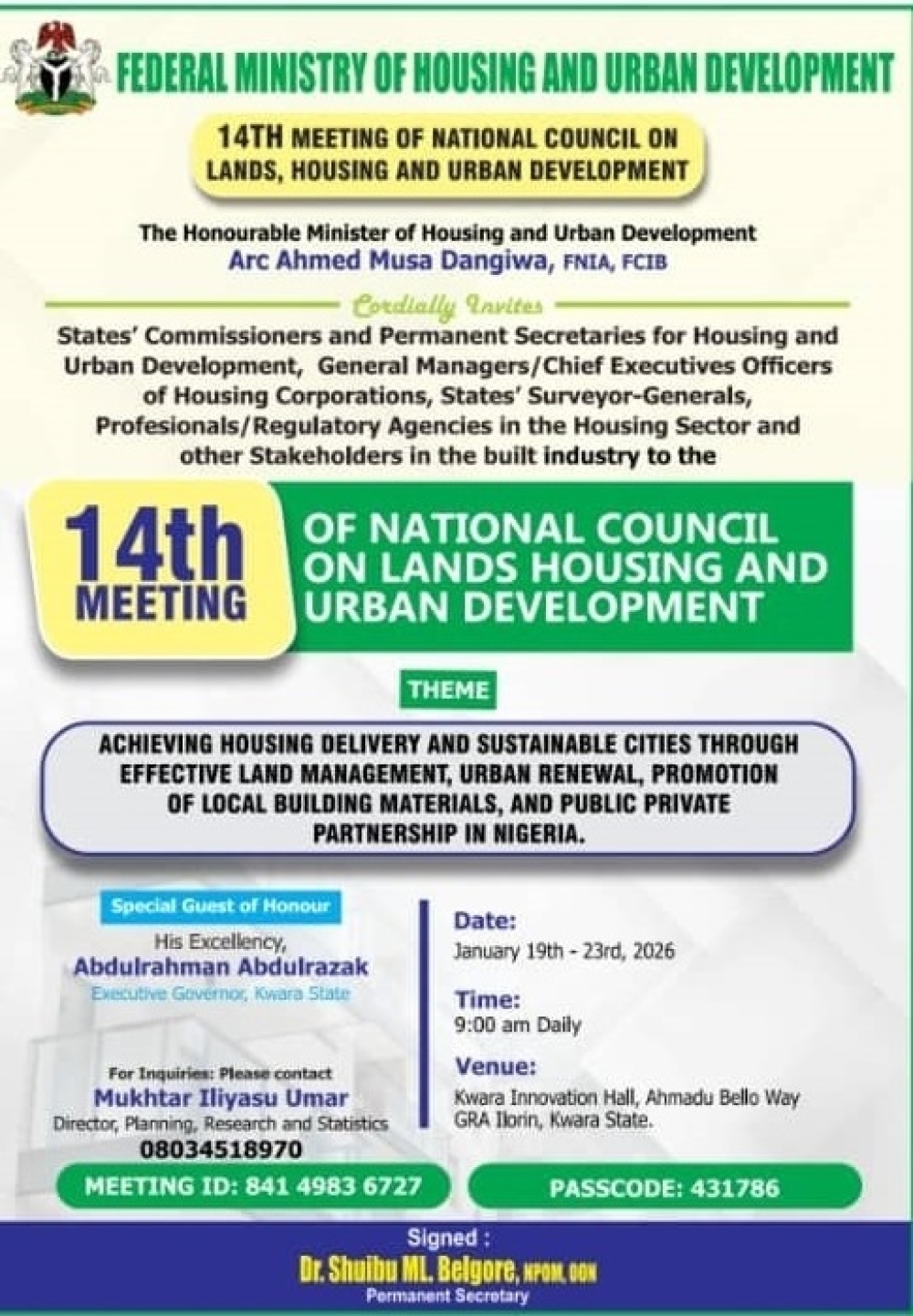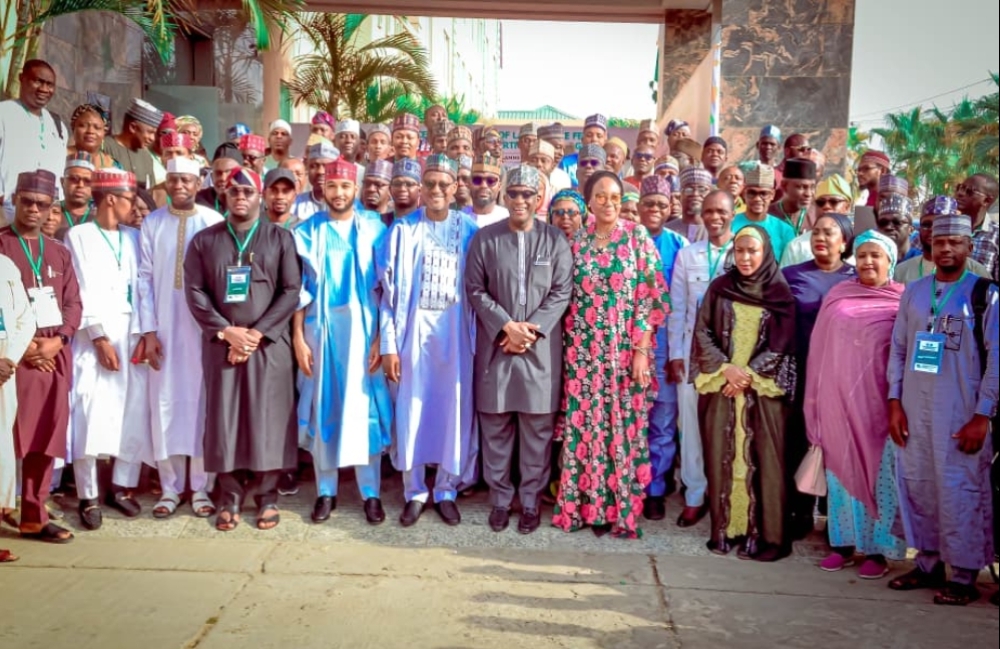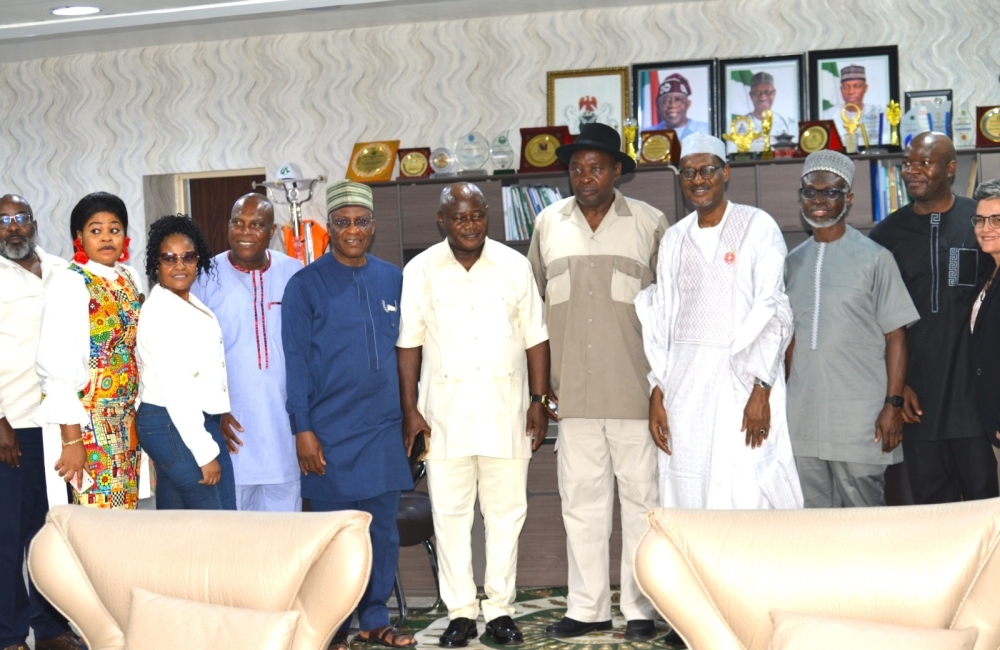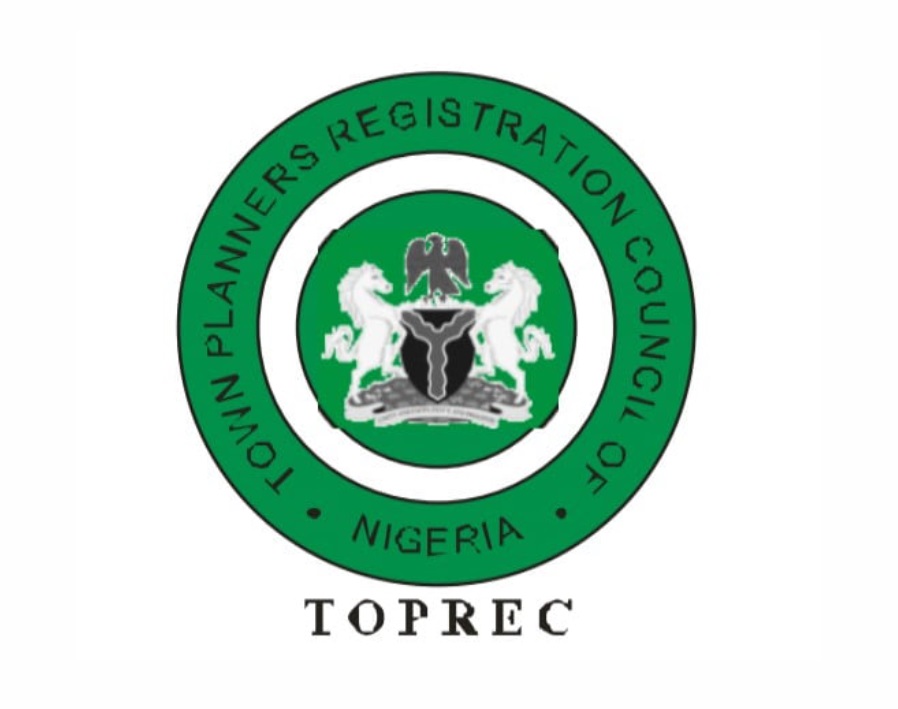SPEECH BY THE HONOURABLE MINISTER, FEDERAL MINISTRY OF HOUSING & URBAN DEVELOPMENT, ARC. AHMED MUSA DANGIWA, AT THE NIGERIA DIASPORA INVESTMENT SUMMIT (NDIS), ON TUESDAY, 14TH SEPTEMBER 2023
PROTOCOL
Vice President, Kashim Shettima Mustapha, GCON,
Excellences and Members of the Federal Executive Council,
Ministers and Permanent Secretaries,
Heads of Parastatals and Agencies,
Heads of International Organizations,
The Diaspora Community,
Members of Civil Society and Non-Governmental Organizations,
The Media and members of the Press,
Distinguished Ladies and Gentlemen,
SPEECH
1. I would like to begin by appreciating and acknowledging the innovative drive of the Nigerian Diaspora Commission (NiDCOM) under the able chairmanship of Hon. Abike Dabiri. We want to thank them for the good work that they are doing in actualizing the mandate of the Commission. Over the years we have seen NiDCOM champion several initiatives and programs that are helping our country leverage the massive potential of our diaspora for national development.
2. This 6th Edition of the Nigeria Diaspora Investment Summit is only one of such strategic programs that are helping to deepen the engagement and participation of the diaspora in Nigeria’s economy across several sectors, including the housing and real estate sector. We have over 20million Nigerians in Diaspora remitting an average of over $24bn per annum.
3. Madam Chairman, we commend your leadership, the support of your team and partners and pray for more strength and wisdom to tap this huge potential.
4. Today, I am delighted to be here and to speak at this Summit under the theme “New Vistas, Aspirations, New Vision: The Diaspora and National Development”.
5. This is because I believe it is important to communicate and assure the Diaspora that Nigeria is open for business in the housing and urban development space. That His Excellency, President Bola Ahmed Tinubu, GCFR, has a bold vision for the sector and is committed to backing it up with the necessary political will to break down all barriers that discourage investment in the sector.
6. As the Minister of Housing and Urban Development, I have taken Mr. President’s vision and am determined to actualize it. Our aim at the Ministry is to implement the most historic housing and urban sector reforms the country has ever witnessed. We want to drive through initiatives that will create an enabling environment for easier, safer, and profitable private sector investments in the sectors.
7. A notable part of our housing sector reforms that is of particular interest to the Diaspora interested in investing in the housing and real estate sector is land reforms. What we envision is a streamlined land administration that cuts through the bureaucratic bottlenecks and systemic inefficiencies to ensure cost effective and efficient access to land for both individuals and investors in our country.
8. Currently, we have a situation where the Land Use Act, which was enacted in 1978 has no complementary institution set up alongside it to provide the necessary framework, guidelines, and regulations for operationalizing it. Under the Renewed Hope Agenda of His Excellency, President Bola Ahmed Tinubu, GCFR, we aim to fix this systemic anomaly. We are working to establish a National Land Commission. Part of their work will be to outline clear implementation guidelines for the Land Use Act to chart a new path of effective land administration in the country.
9. Last week I met with the leadership of the Presidential Technical Committee on Land Reforms, Prof. Peter O. Adeniyi, where I committed to incorporating the comprehensive work, they have done over 14-years in our land reform strategy. As the renowned land reform scholar said, experience shows that a nation can never develop if it does not conduct land reform. This will be done under the Renewed Hope Action Plan for Housing.
10. The second is the nationwide adoption of the Model Mortgage Foreclosure Law. The Model Mortgage Foreclosure Law (MMFL) provides contemporary provisions on the creation, registration, and enforcement of mortgages, along with remedies like foreclosure and the enforcement of mortgages on real properties and related purposes in Nigeria.
11. As of date, the Model Mortgage Foreclosure Law (MMFL) has been passed in only four (4) states, including Lagos, Kaduna, Ekiti, and Nasarawa States. We aim to drive its passage in all the states of the federation as part of our efforts to ensure that investments in the housing and mortgage sector are protected.
12. Under the Renewed Hope Agenda of His Excellency, we are also particular about boosting local manufacturing of building materials. Nigeria’s shortfall in the supply of quality housing stock presents a good opportunity for investors. To drive this, we aim to create an enabling environment for private sector players to produce building materials locally to lower cost, create jobs, grow the local economy, and ultimately ensure inclusive growth. To do this we are planning to establish six (6) manufacturing hubs – one in each of the six (6) geo-political zones in the country. The hubs will be provided with relevant facilities, including access roads, electricity, fit for purpose housing and relevant linkages for manufacturers to site their firms and operate. We are also proposing relevant incentives that will make it more profitable and rewarding for the private sector to manufacture building materials locally.
13. Personally, I do not worry much about the challenges that we have in our country today and I encourage each one of us, especially our diaspora, to have that mindset. These challenges represent opportunities for us to make a difference and chart a more progressive path forward. And I think that is the essence of this Summit.
14. The good news is that we now have a President who is a visionary, a problem solver, a game changer with the political will to get the right thing done. And as a Ministry, we are willing to support Diaspora initiatives in the housing and urban development space as well as encourage partnerships with the Diaspora towards making a change in the housing and urban development narrative of our dear country.
15. It is important for me state that when we think about the Diaspora, we are not only thinking of them as sources of finance to develop our country, but we also see them as Nigerians, who though abroad, are desirous of owning homes in Nigeria.
16. It is in line with this thinking, that when I was the Managing Director/Chief Executive of the Federal Mortgage Bank of Nigeria (FMBN), I developed the Diaspora Housing Mortgage Loan in collaboration with the Nigerians in Diaspora Commission (NiDCOM).
17. The Diaspora Housing Mortgage Scheme is designed to enable Nigerians living overseas participate in the National Housing Fund (NHF) Scheme so they can access up to N50million to own their homes in Nigeria. Participants can access the loan via a National Housing Fund (NHF) loan, Rent-to-Own or the Individual Construction loan window. The terms are affordable and best market rates. This includes a single-digit interest rate of 9%, and a payback period of up to 10 years.
18. As part of the initiative, the Federal Mortgage Bank of Nigeria will facilitate the construction of affordable housing units in major cities that meets the specifications of Nigerians in Diaspora.
19. I want to say that the FMBN is not the only agency under the Ministry of Housing and Urban Development that is delving into catering to the housing needs of the Diaspora. The Federal Housing Authority (FHA)is also involved as part of the Ministry’s sector wide effort to cater to the Diaspora. They have undertaken to develop the Diaspora City Project under a Public Private Partnership comprising the FHA, The Nigerians in Diaspora Commission (NIDCOM) the Federal Capital Territory (FCT) and the private sector. The Project is situated in Maitama 2, with over 675 hectares of land. The FCT administration has committed to opening the road and providing the relevant infrastructure. The Diaspora City project is designed to have bungalows, semi-and detached duplexes, and mansions to reflect its inclusive essence.
20. Our overall goal is to ensure that as our brothers and sisters’ sojourn abroad, they also have a decent shelter over here in Nigeria to call their home.
21. So, today, I want to say that I am excited to be the Minister of Housing and Urban Development to launch the Diaspora Mortgage Scheme, which I initiated as the MD/CE of the Federal Mortgage Bank of Nigeria on this auspicious occasion. Indeed, I consider it a positive twist of fate and I want to use this opportunity to urge Nigerians in the diaspora to seize the opportunity the Scheme affords them to actualize their dreams of owning affordable homes in Nigeria.
22. I am aware that the Mortgage scheme is set to be formally launched in the United Kingdom, Canada, and the United States soon, and it is my hope that the diaspora community would take full advantage of this opportunity and massively subscribe to reap its short and long-term benefits.
23. As I conclude my speech, I would like to assure you of the Federal Ministry of Housing and Urban Development’s commitment to sustaining the necessary collaborations, partnerships, and engagements with all relevant Stakeholders in the Housing and Urban Development sector, as we all work together towards ensuring the success of the Diaspora Housing Mortgage scheme, providing affordable housing, and ensuring sustainable urban development for Nigerians.
24. Thank you for your attention and may God bless Nigeria.
Arc. Ahmed Musa Dangiwa
Honourable Minister of Housing of Urban Development
14th November 2023










